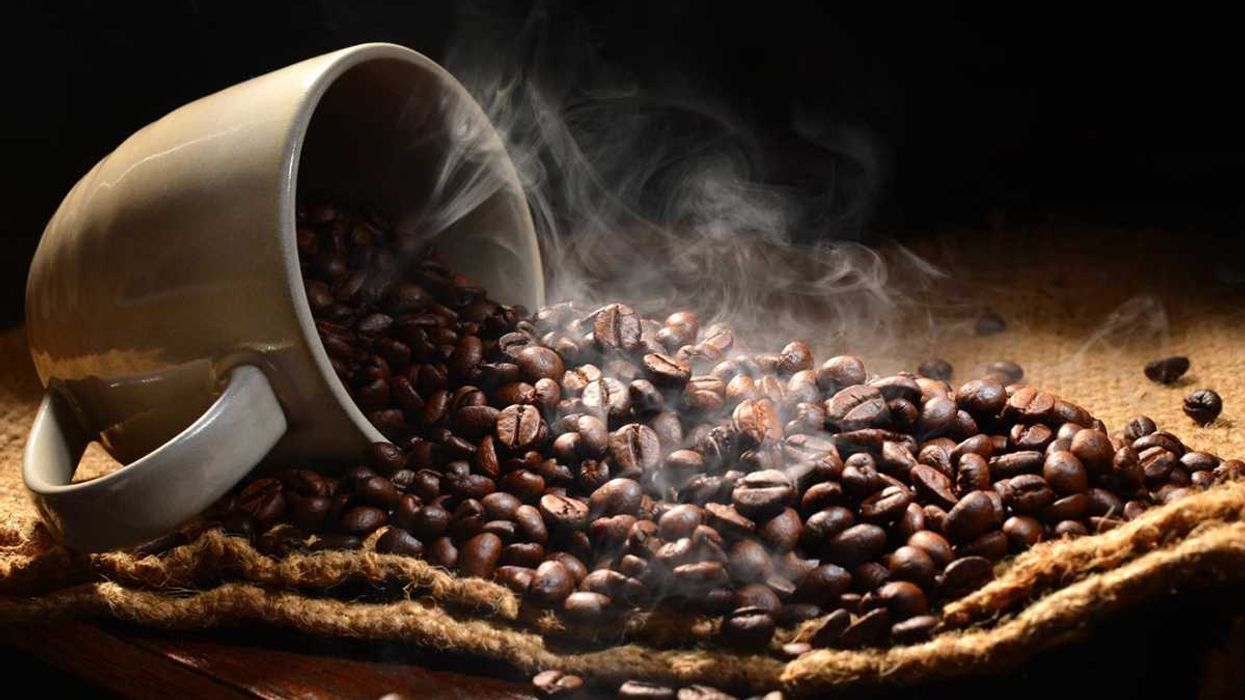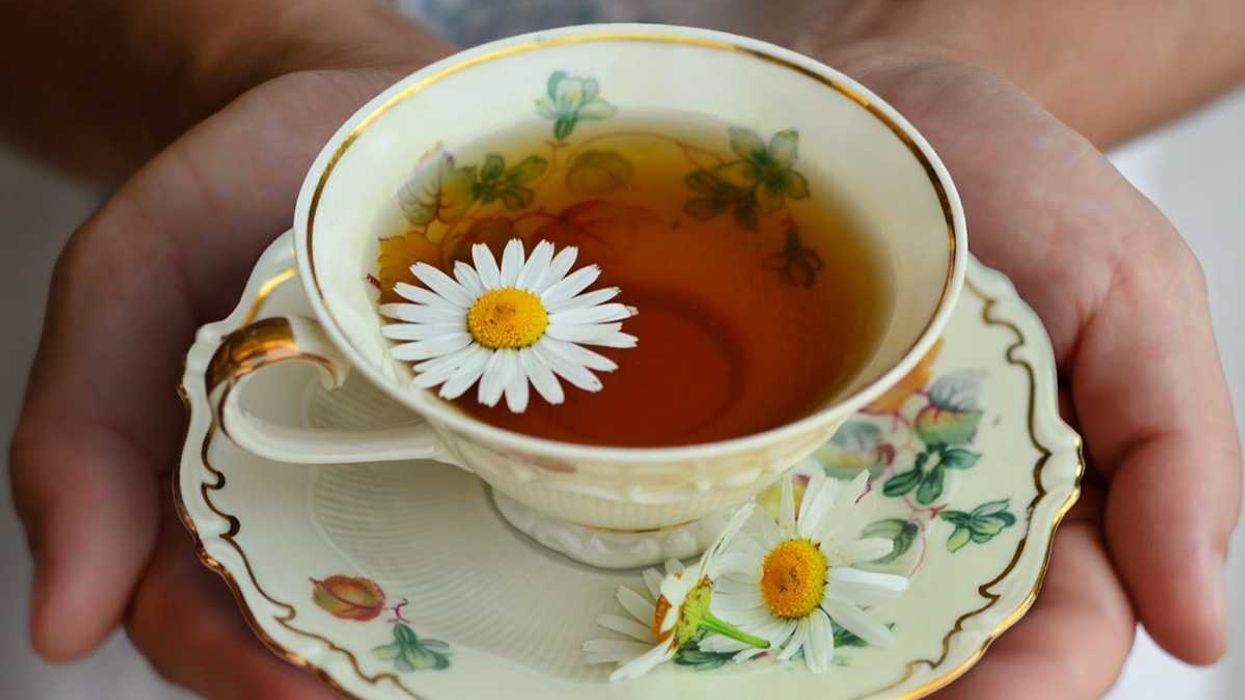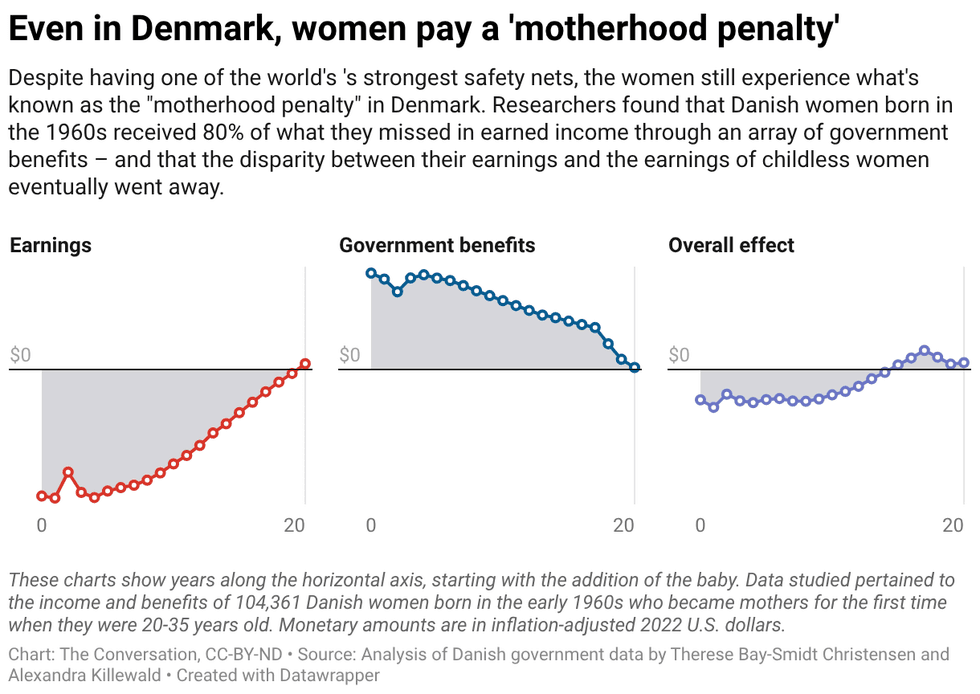Lack of sleep is, unfortunately, a common, growing problem many people face. A morning cup of coffee has often been the go-to solution for finding the pep to face the day, while others seeking to be more health-conscious might choose a substitute like tea.
Turns out, the best solution might lie within a specific combination of the two. The calming effect of L-theanine in tea and the energy boost from caffeine in coffee can be combined to find the perfect, science-based solution that powers and energizes your day.

Scientists search for a perfect food source to support optimal cognitive performance
Researchers have long been searching for that perfect food supplement to support cognitive performance. A 2025 study published in Cambridge University Press found that accuracy and speed significantly improved when participants ingested a specific dose of both L-theanine and caffeine. Of the 37 sleep-deprived healthy adults tested on a visual stimulus discrimination task, after ingesting 200mg of L-theanine and 160mg of caffeine, their reaction times improved, with both increased amplitude and reduced latency. Using brainwave data, findings suggest the combination "brought about greater and faster neural resource allocation in the attentional networks of the brain."

The benefits of drinking coffee
Coffee has long been studied and found to have many benefits linked to healthy aging and improved alertness. A 2025 study in MDPI found moderate coffee consumption is associated with lower overall mortality and reduced risk for major diseases such as cardiovascular disease, type 2 diabetes, and some cancers. A 2025 review published in Coffee & Health noted that regular consumption may even add an extra 1.8 years of healthy life. The non-caffeine bioactive compounds, such as polyphenols, contained in coffee support genomic stability and lower stress response.
A 2024 study published by the Mayo Clinic Press associated moderate caffeine intake with improved alertness, mood, reduced risk of depression, and the reduction of neurodegenerative disorders like Alzheimer's and Parkinson's disease.

The benefits of drinking tea
There are similar health benefits found in drinking tea. Much like the regular consumption of coffee, tea drinkers can expect to increase their life expectancy by as much as 2.24 years. A 2025 study in BMC showed a lowered risk of cognitive decline and dementia and better overall quality of life. A 2025 study in MDPI showed that green tea not only had antioxidant, anti-inflammatory, antimicrobial, and anticancer benefits but also had promising weight-control effects. Some populations show stronger effects and benefits based on age and ethnicity. However, cognitive age-related benefits seem helpful based on consistency and habitual drinking.

What happens when you combine both the effects produced by drinking coffee and tea?
Studies on combining the effects of drinking both tea and coffee are mostly observational. The study, recently published by Cambridge University Press, attempted to lend scientific weight through brainwave analysis. There is growing evidence suggesting a synergistic association between the health benefits of the two drinks. Moderate intake is a common theme and reports the most benefits. Most of these studies are more observational and do not necessarily guarantee causation.


















 A high school senior shows how to unlock a magnetic pouch that holds her smartphone at University High School Charter in Los Angeles in March 2025.
A high school senior shows how to unlock a magnetic pouch that holds her smartphone at University High School Charter in Los Angeles in March 2025. An eighth grader unlocks her cellphone from a pouch at Mark Twain Middle School in Alexandria, Va., in March 2025.
An eighth grader unlocks her cellphone from a pouch at Mark Twain Middle School in Alexandria, Va., in March 2025.
 Gif of a mom wiping her child's dirty face via
Gif of a mom wiping her child's dirty face via 
 A woman holds a family member's hand in the hospitalCanva
A woman holds a family member's hand in the hospitalCanva A bird flying across the sky under the sunCanva
A bird flying across the sky under the sunCanva
 The ‘motherhood penalty’ is largest in the first year after a mom’s first birth or adoption.
The ‘motherhood penalty’ is largest in the first year after a mom’s first birth or adoption. 


 (LEFT) Film premiere at ArcLight Theatre Hollywood; (RIGHT) LaNasa signing autographs at TIFF.thepaparazzigamer/
(LEFT) Film premiere at ArcLight Theatre Hollywood; (RIGHT) LaNasa signing autographs at TIFF.thepaparazzigamer/  Radical acceptance.Photo credit:
Radical acceptance.Photo credit: 
 Scott Galloway in Barcelona in 2025.Photo credit: Xuthoria/
Scott Galloway in Barcelona in 2025.Photo credit: Xuthoria/  Resting in the shade of a tree.Photo credit:
Resting in the shade of a tree.Photo credit:  Two people thinking.Photo credit:
Two people thinking.Photo credit: 